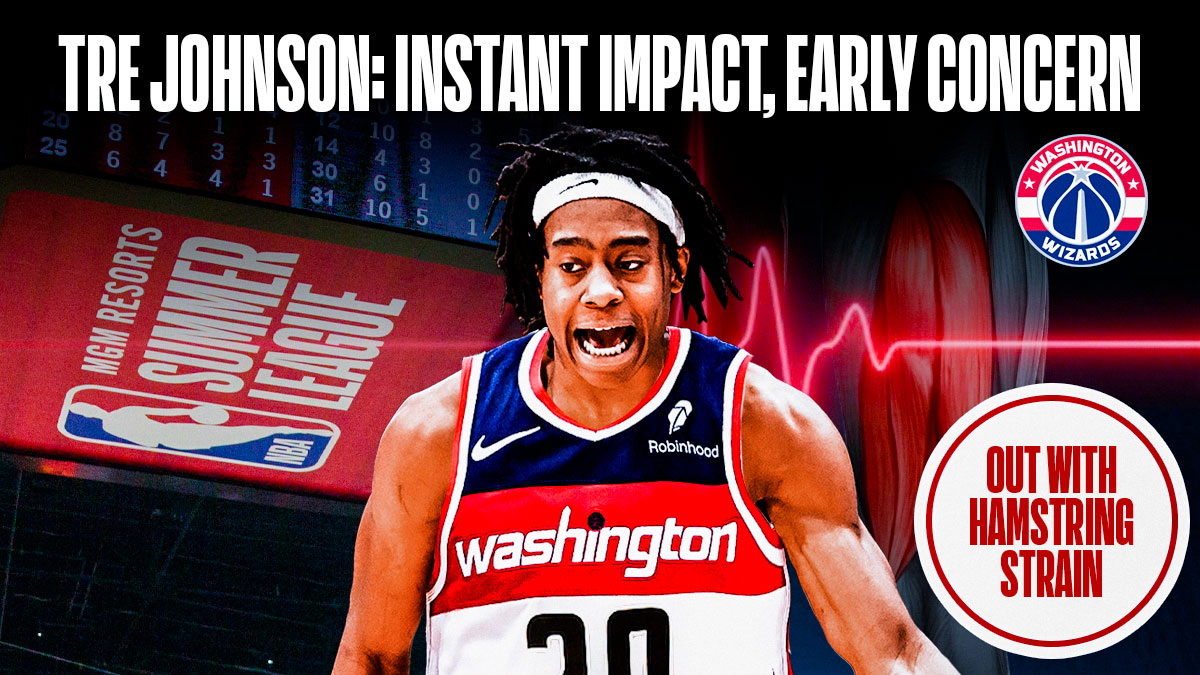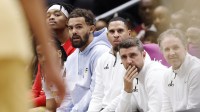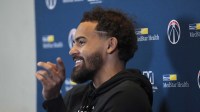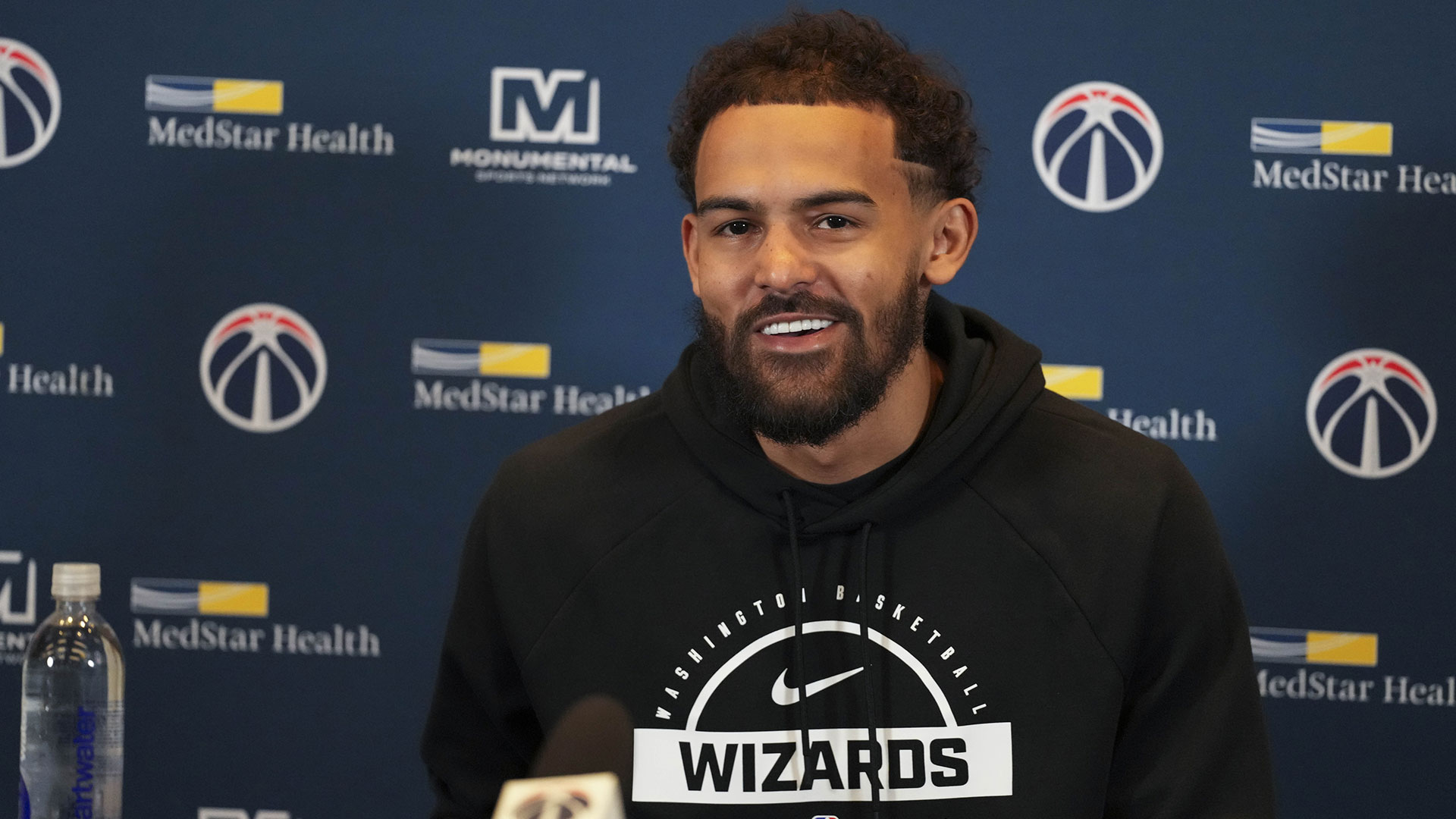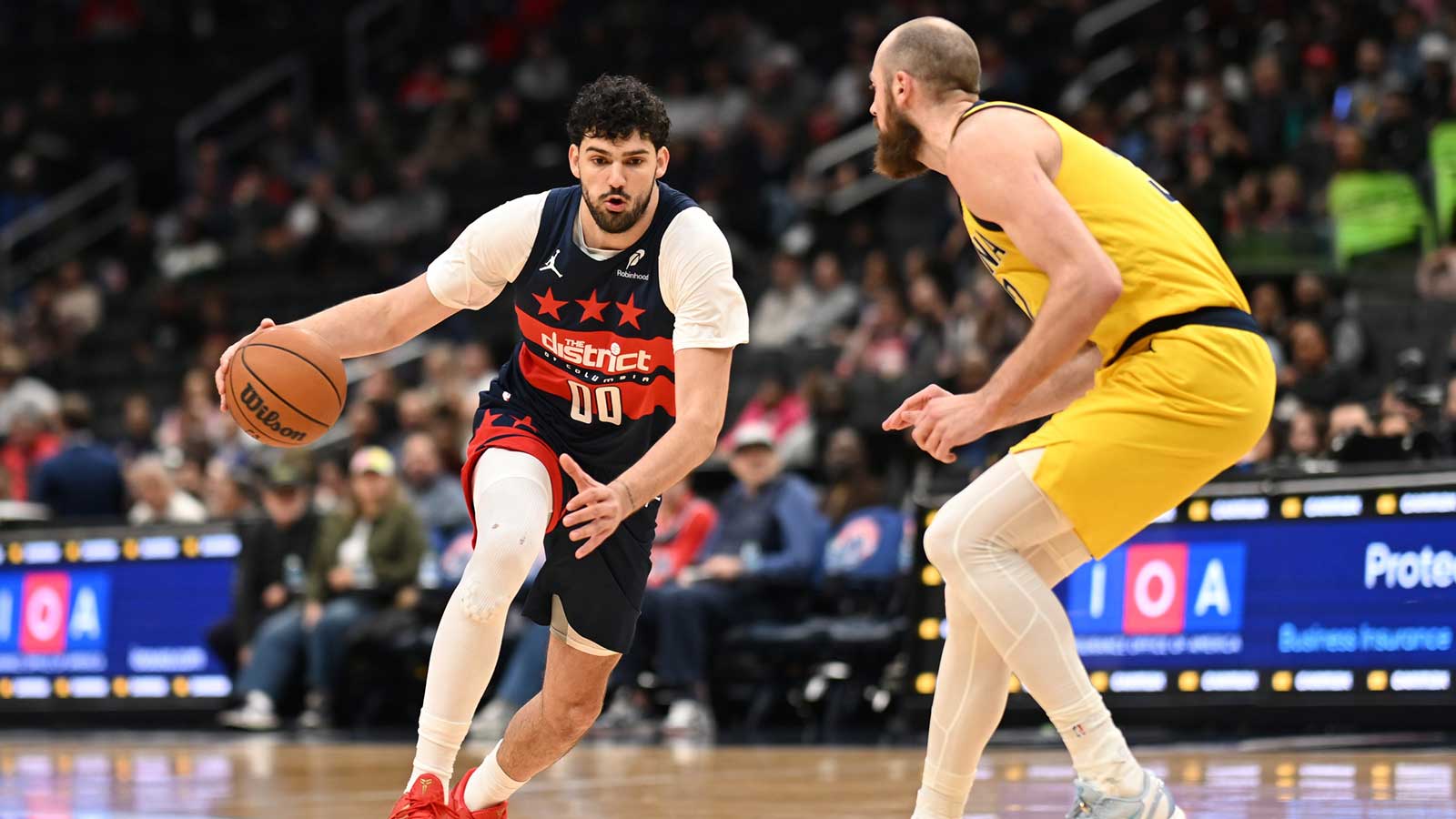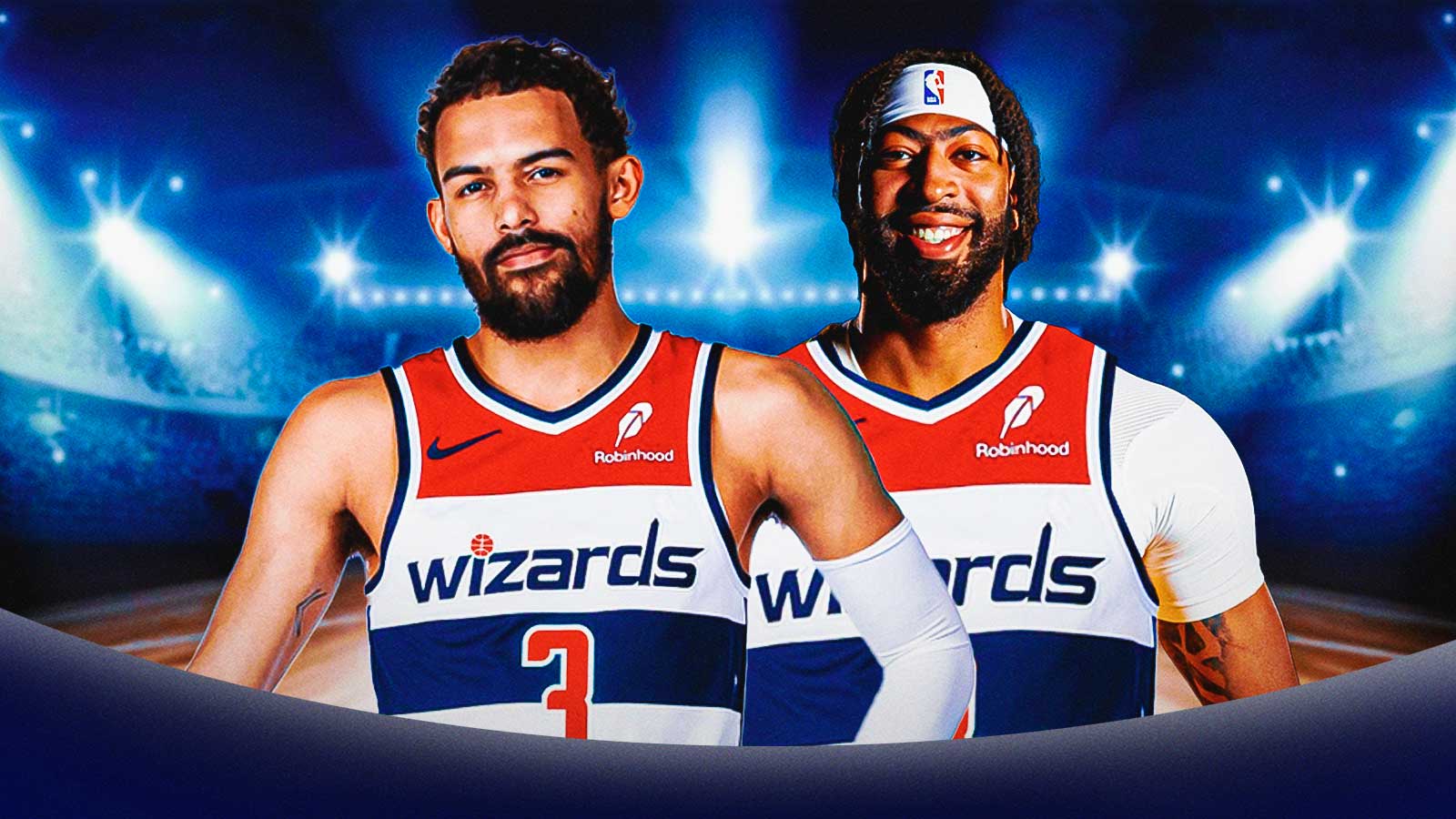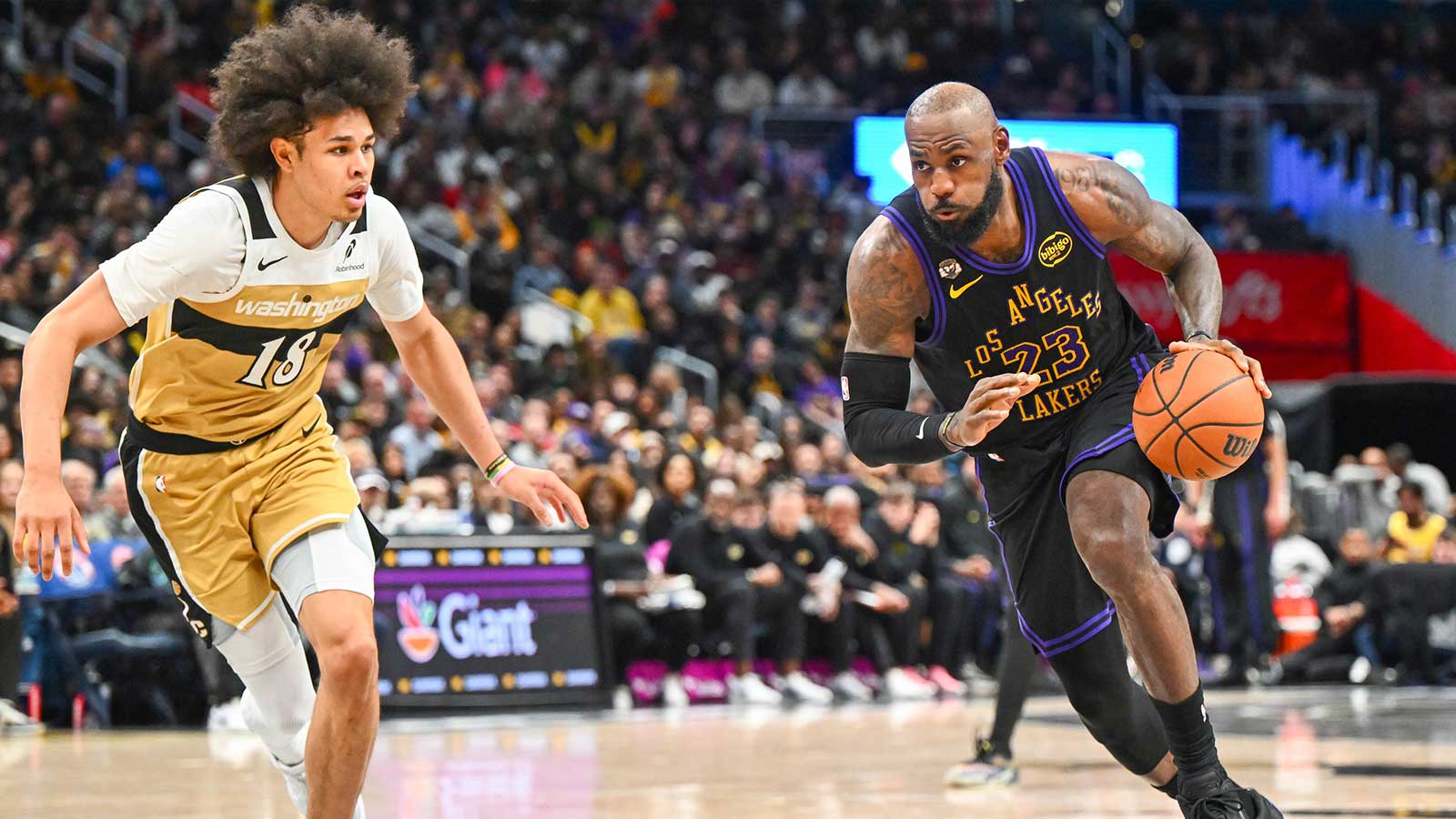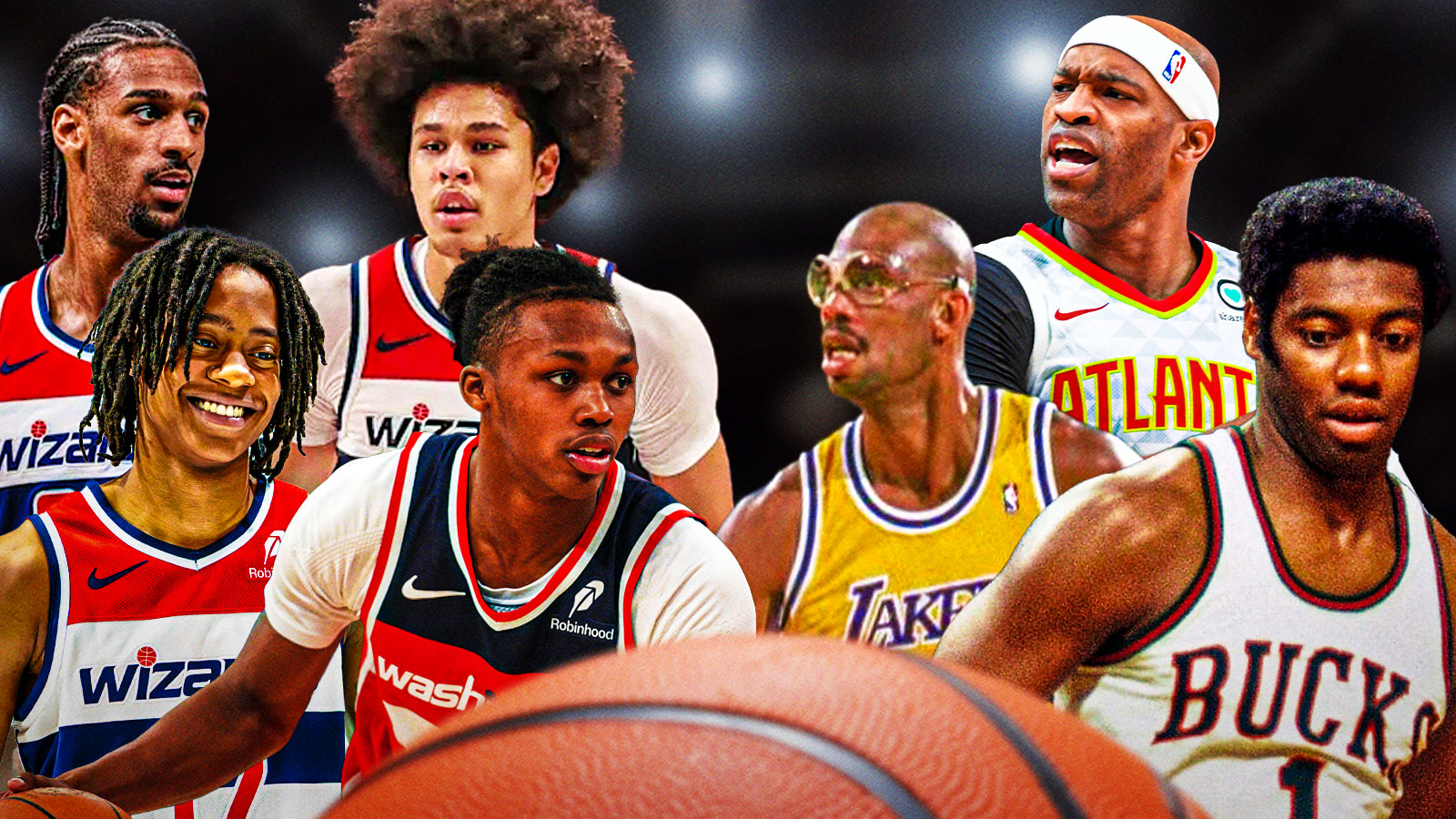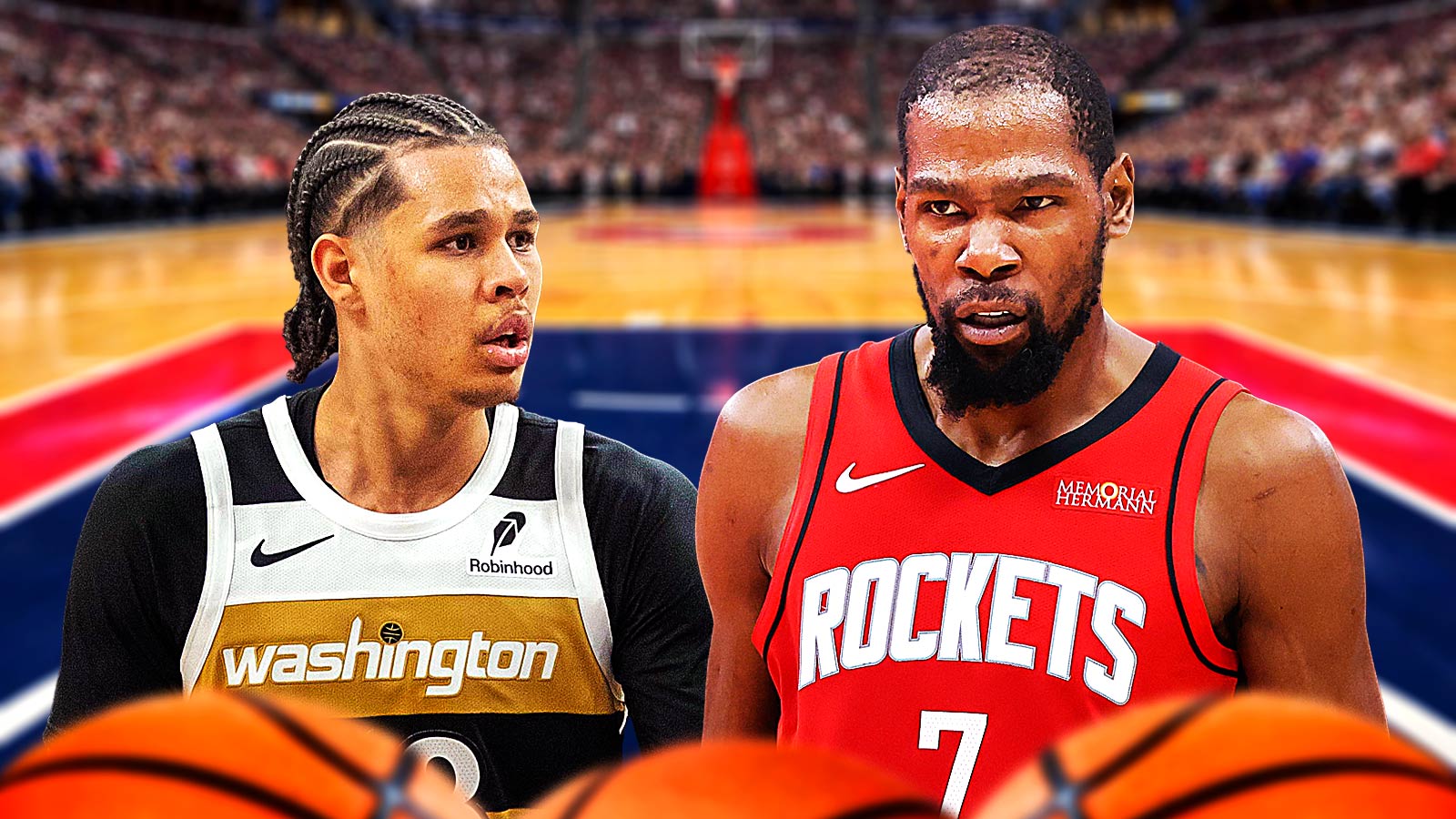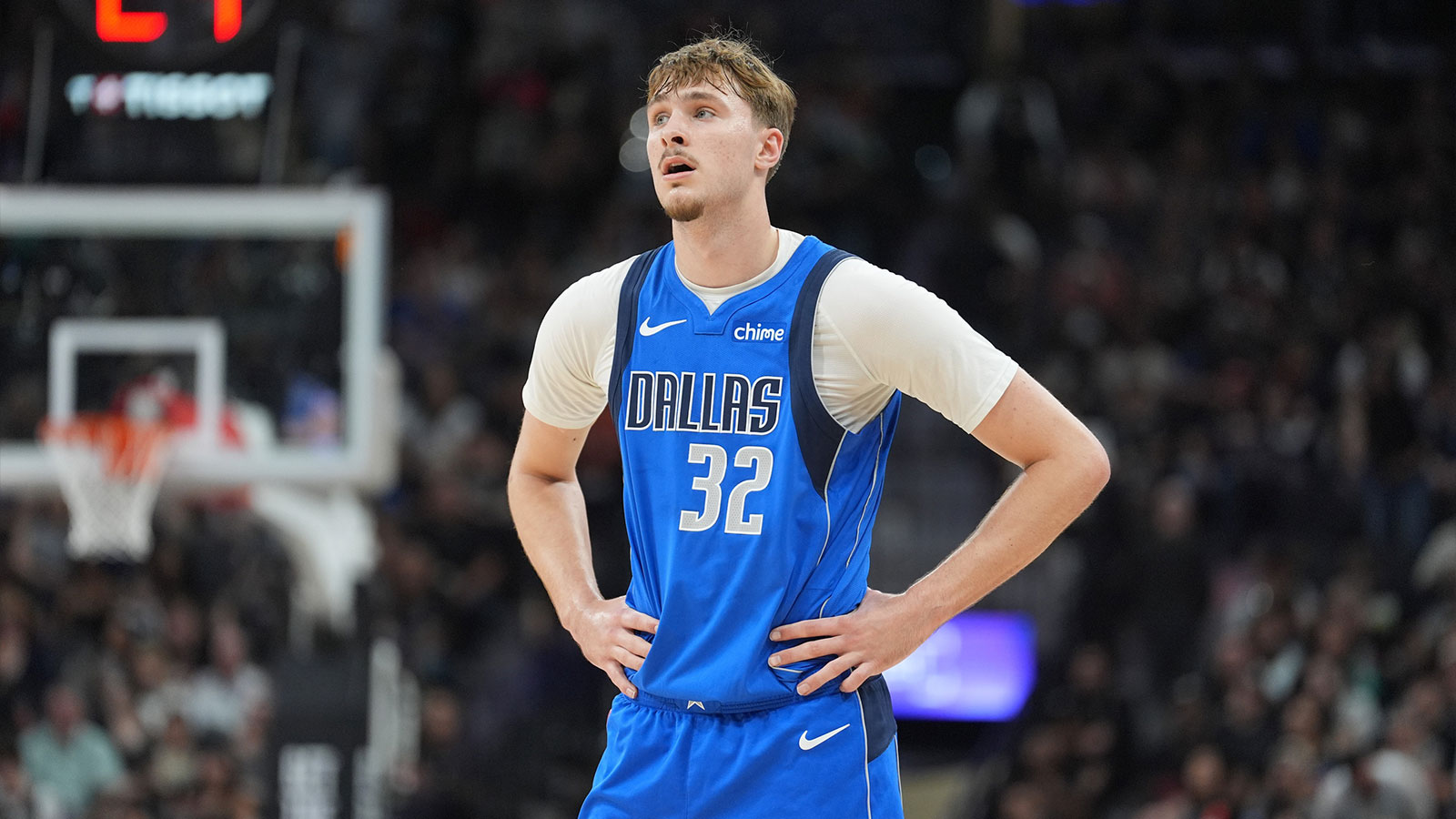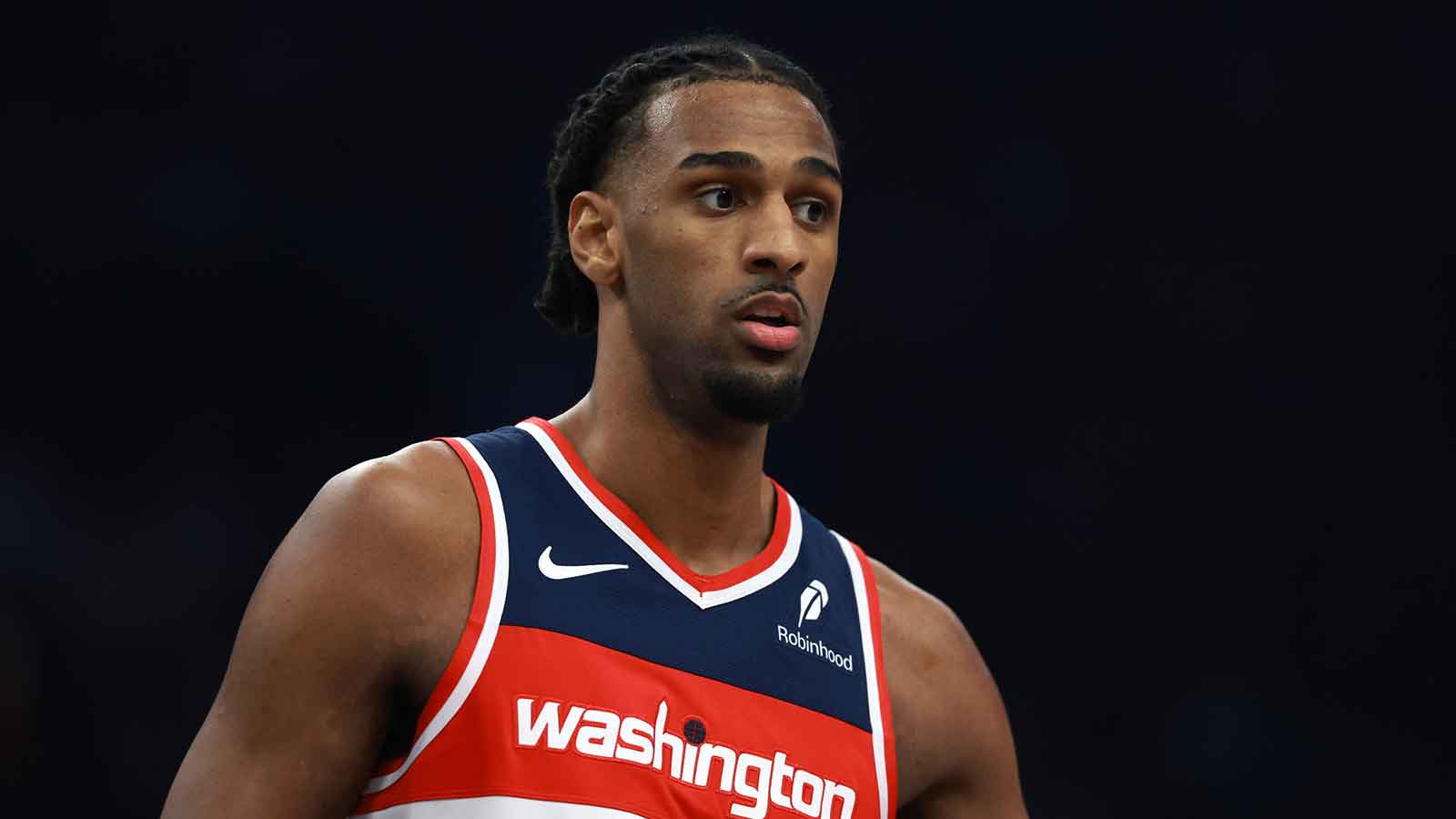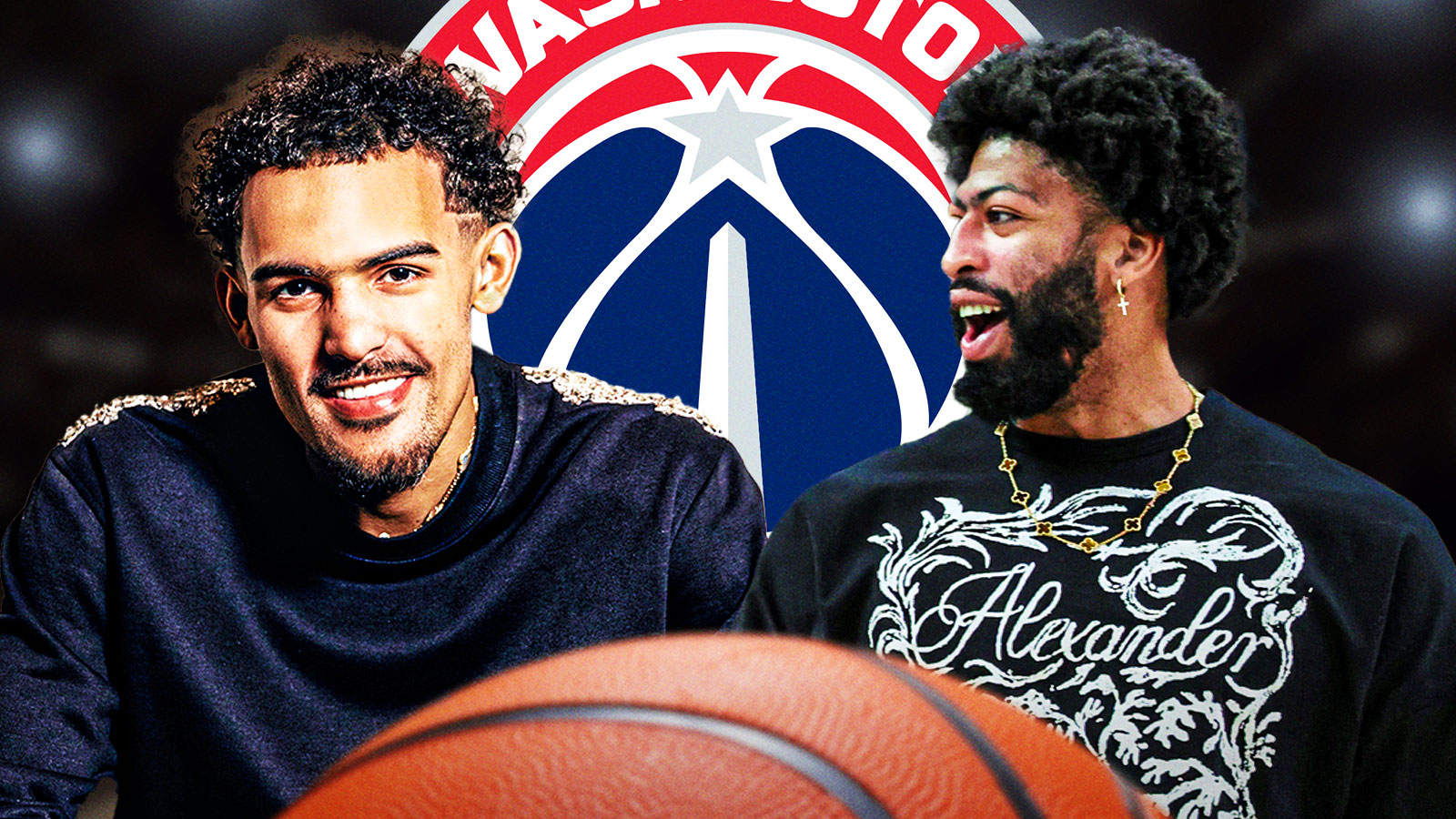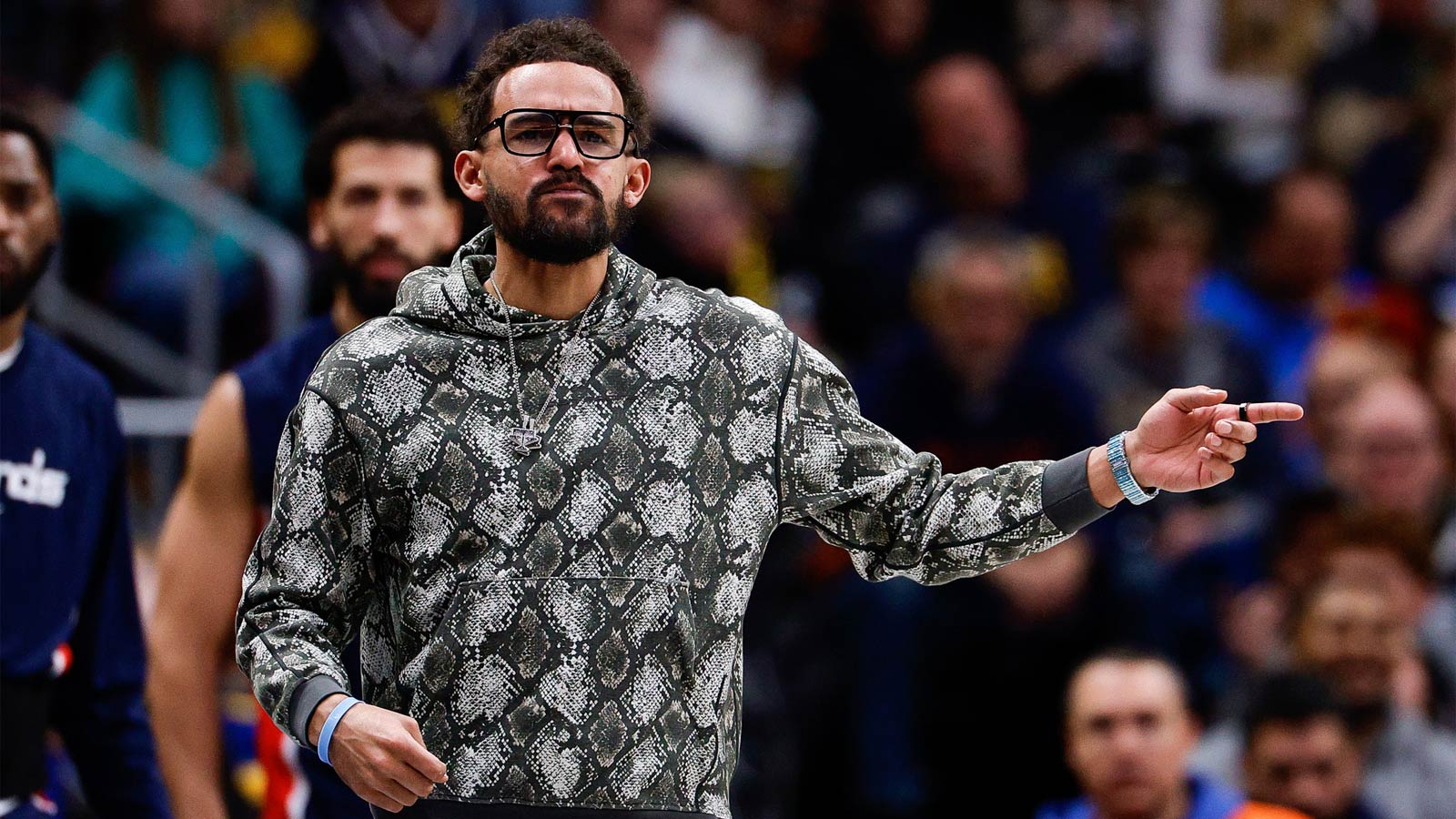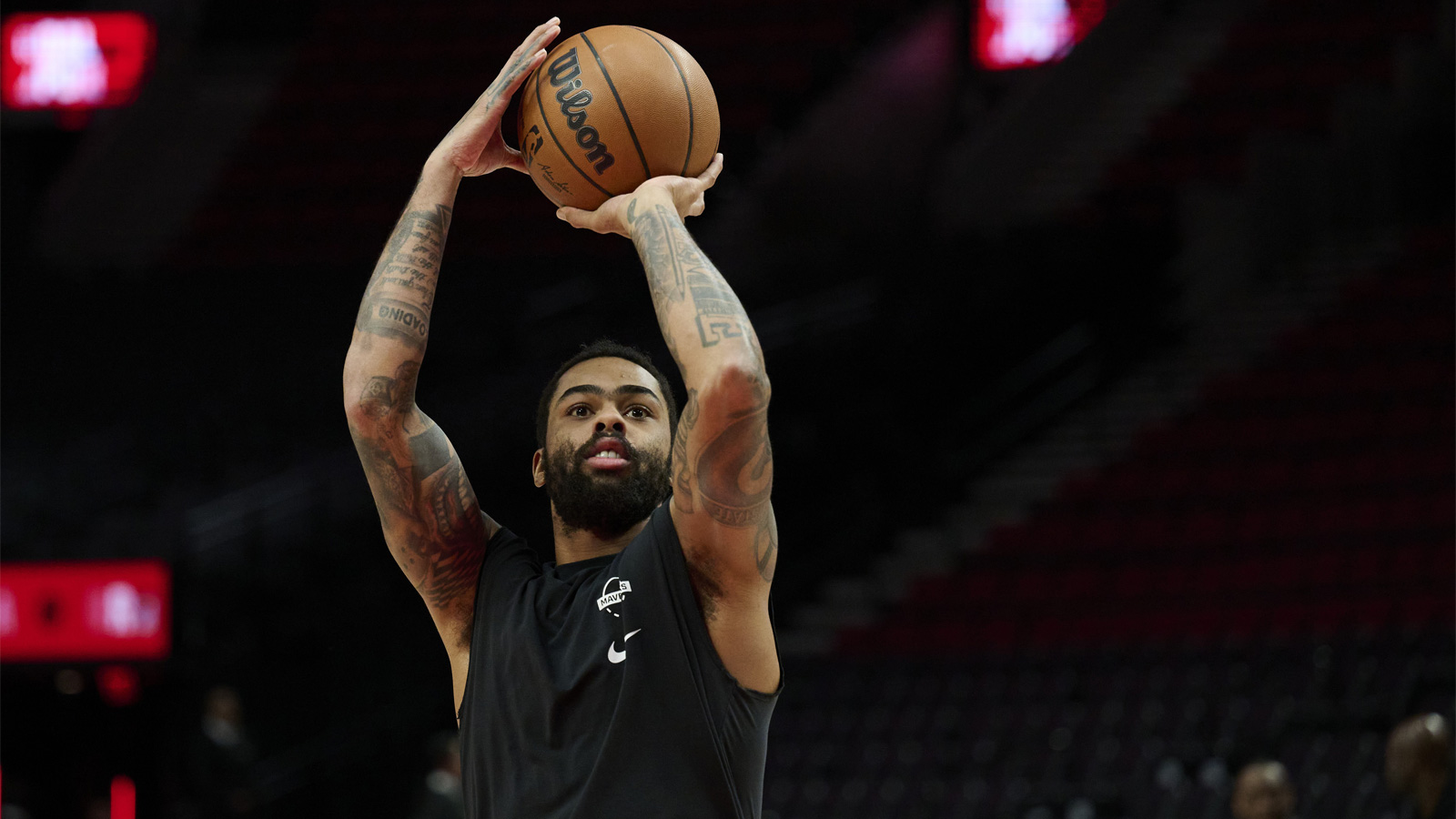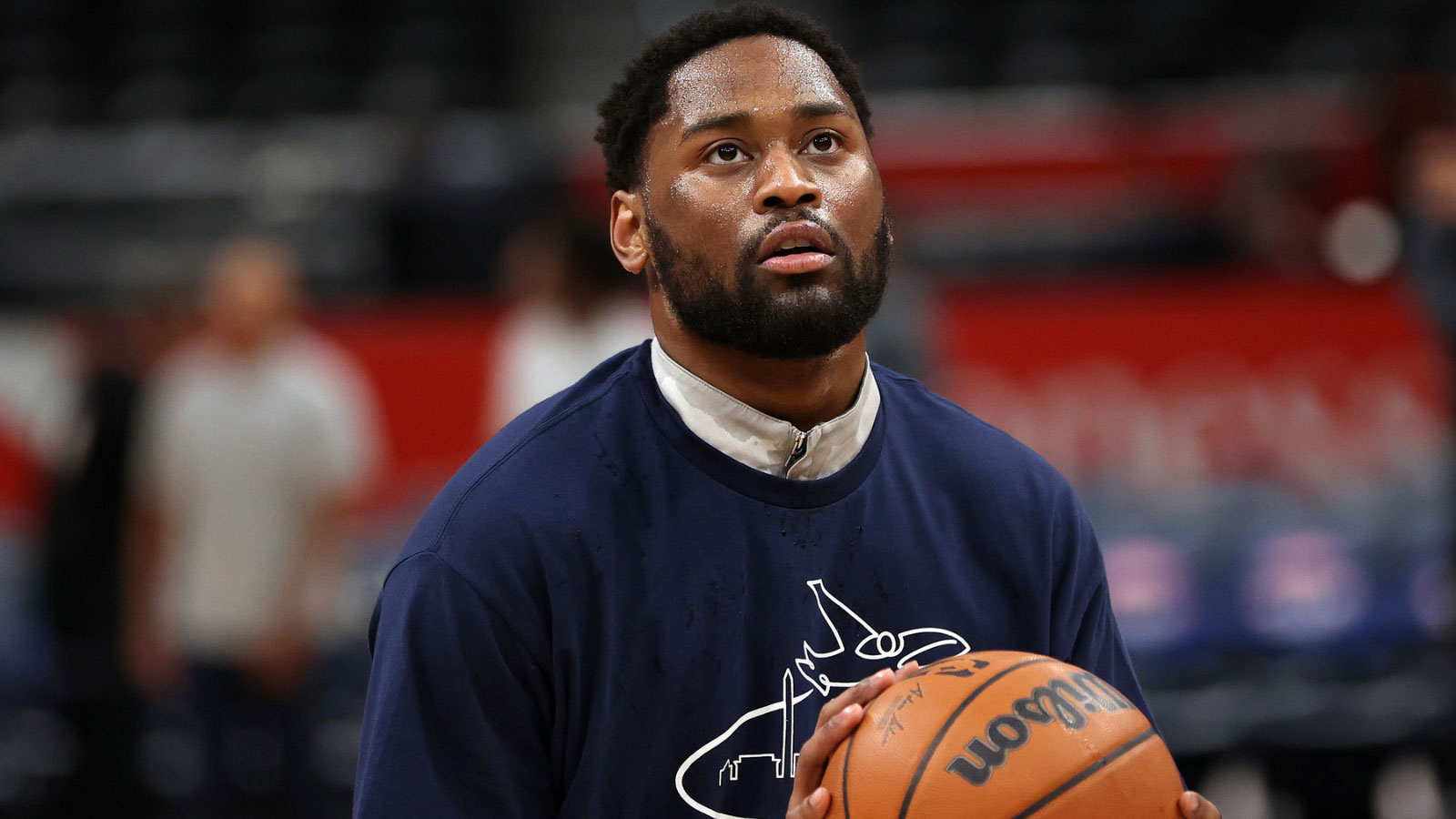In a Summer League full of uncertainty, Tre Johnson was one of the few sure things. Across just two games, the No. 6 overall pick in the 2025 NBA Draft proved he was a step ahead of his peers, scoring 39 points in 55 minutes while showcasing shot versatility, offensive poise, and NBA-ready scoring instincts. T
he Washington Wizards had to like what they saw. Johnson’s offense popped from the jump. But just as quickly as his Summer League stardom began, it was over. A minor hamstring injury forced the Wizards to shut him down, ending his Las Vegas campaign early. While the injury isn’t serious, it still surfaced an early concern that could follow Johnson into his rookie season: durability and physical readiness for the NBA grind.
The Wizards' concern: Can Tre Johnson stay healthy?
A hamstring strain isn’t alarming on its own; players are frequently pulled from Summer League action for precautionary reasons. But for a player expected to shoulder a significant offensive load, soft-tissue injuries can be tricky.
The concern isn’t that Johnson’s injured, it’s that his body may not be fully NBA-ready yet. The grind of an 82-game schedule is vastly different from a college season or two short bursts in Vegas. Conditioning, recovery, and physical maintenance are crucial, especially for players expected to carry high-usage roles.
We’ve seen this pattern before. Elite scorers flash in Summer League or early rookie games, only to be hampered by lingering injuries: hamstrings, ankles, groins – that stall development. Think Cam Thomas, Tyrese Maxey’s rookie year (though he blossomed later), or even early-career Bradley Beal.
The Wizards can’t afford that timeline again. For a team building from the ground up, any setback to their No. 1 scoring option can delay everything.
Johnson's offensive bag is deep and real
Johnson was billed as one of the class’s elite scorers, and he backed that up immediately. In his two games, he averaged 19.5 points while shooting 58.3% from the field and 45.5% from three. He hit off-the-dribble jumpers, catch-and-shoot threes, and floaters in the lane. He got to the rim in transition, came off DHOs in rhythm, and pulled up with confidence in the mid-range.
He wasn’t just getting numbers; he was doing it with efficiency and variety.
Tre Johnson SL Debut vs the Suns..
18 PTS (7-12 FG, 3-5 3PT)
3 REBS
2 ASTBIG Steal.. how we feelin?? pic.twitter.com/OGUqLAeHMb
— Frankie Vision (@Frankie_Vision) July 12, 2025
His debut against the Suns featured 18 points on 7-of-13 shooting, and he followed it up with 21 points on 7-of-11 against the Nets. Only John Wall has scored more in Summer League history for a Wizards rookie, and Johnson’s 68.7% true shooting was third among all 2025 first-round picks.
Though Johnson wasn’t tasked with running the offense, he showed flashes of solid vision. He made smart reads in pick-and-roll actions, delivered skip passes to open shooters, and stayed patient against traps.
He also displayed strong late-game control, drawing fouls down the stretch in the Nets game and confidently handling the ball in crunch time. It’s rare for rookies to be trusted in late possessions, but Johnson looked composed.
Wizards’ rebuild finally has a scoring pillar
For a franchise that’s leaned defensively in recent drafts, selecting players like Bilal Coulibaly, Johnson was a much-needed pivot. His offensive ceiling is higher than any Wizard since Bradley Beal.
ESPN Polled 20 NBA Executives On The 2025 Draft
Tre Johnson Got Votes For:
2026 Rookie Of The Year Pick
Best Player (Other Than Flagg)
Draft's Biggest StealTre Is Already Gaining BIG Respect From Front Offices 👀 pic.twitter.com/YpZd7MKc74
— WizardsMuse (@WizardsMuse1) July 25, 2025
As a freshman at Texas, he averaged nearly 20 points per game while shooting 43% from the field and 40% from three. He entered the draft as one of the top pure scorers, and the Wizards were lucky to land him at No. 6.
With veterans Khris Middleton and CJ McCollum now part of the roster, Johnson finds himself in an environment that can foster smart habits while giving him room to grow as a future featured option.
Johnson complements the Wizards’ young roster perfectly. Coulibaly brings defensive versatility. Forward Alex Sarr adds strength and toughness. Johnson? He’s the bucket-getter.
The offense will need reshaping, but Washington finally has a foundational scorer to structure around. Whether he starts from Day 1 or comes off the bench early, Johnson’s role is crystal clear: Score and stretch the defense.
Navigating his rookie year will be key
Washington’s coaching staff must balance two goals this season:
-
Get Johnson real NBA reps.
-
Protect him from unnecessary overuse.
He’s too good to bury in the rotation, but throwing him into 35-minute nights in November may do more harm than good. Integrating him slowly: perhaps in bursts, second units, or spot starts, could allow him to adjust physically while staying confident offensively.
With Middleton and McCollum in place, the Wizards are uniquely suited to slow-roll Johnson’s development. He doesn’t need to average 20 points or carry the offense in year one. Instead, he can build habits, learn the league, and gradually expand his role, the way Tyrese Haliburton or Desmond Bane did early on.
The potential is evident. Now, it’s about ensuring his body is ready to support it.
Cautious optimism in D.C.
Tre Johnson III didn’t just meet expectations in the Summer League; he blew past them. In two games, he cemented himself as one of the most polished scorers in the 2025 draft class. The Wizards, for once, may have found their guy.
But the journey won’t be instant. His early injury, while not severe, is a reminder that no rookie path is linear. For Johnson, the biggest challenge won’t be skill; it’ll be staying on the floor long enough to refine it.
If the Wizards manage that carefully, they might have their next star in the making. If not, a promising start could get lost in the grind.

